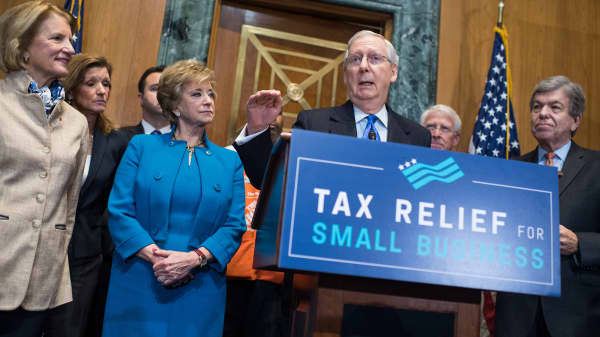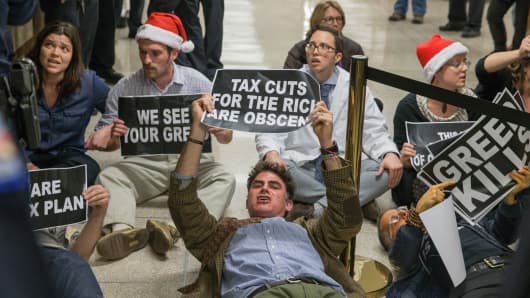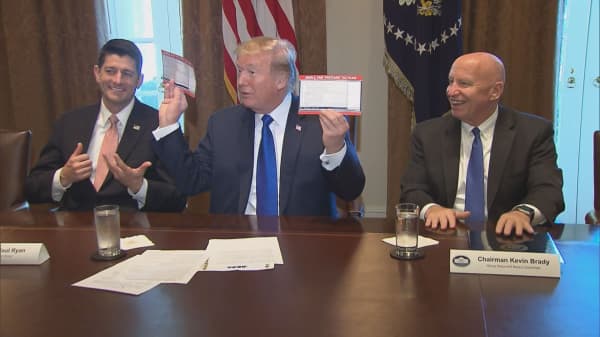The Senate tax plan would add more than $1 trillion to federal deficits over a decade even after economic growth is taken into account, a congressional analysis estimated Thursday.
The projection from the Joint Committee on Taxation — the official congressional scorekeeper — undercuts the White House argument that tax reductions will effectively pay for themselves. The Trump administration and other Republicans have argued that economic growth sparked by cuts will cancel out lost revenue.
The JCT report comes only hours before an expected Senate vote to overhaul the American tax system. Multiple Republican senators have expressed concerns about blowing up federal deficits with tax cuts. At least three of those senators — Bob Corker of Tennessee, Jeff Flake of Arizona and James Lankford of Oklahoma — are seeking a "trigger" to automatically raise taxes if economic growth does not generate as much revenue as Republicans hope.







